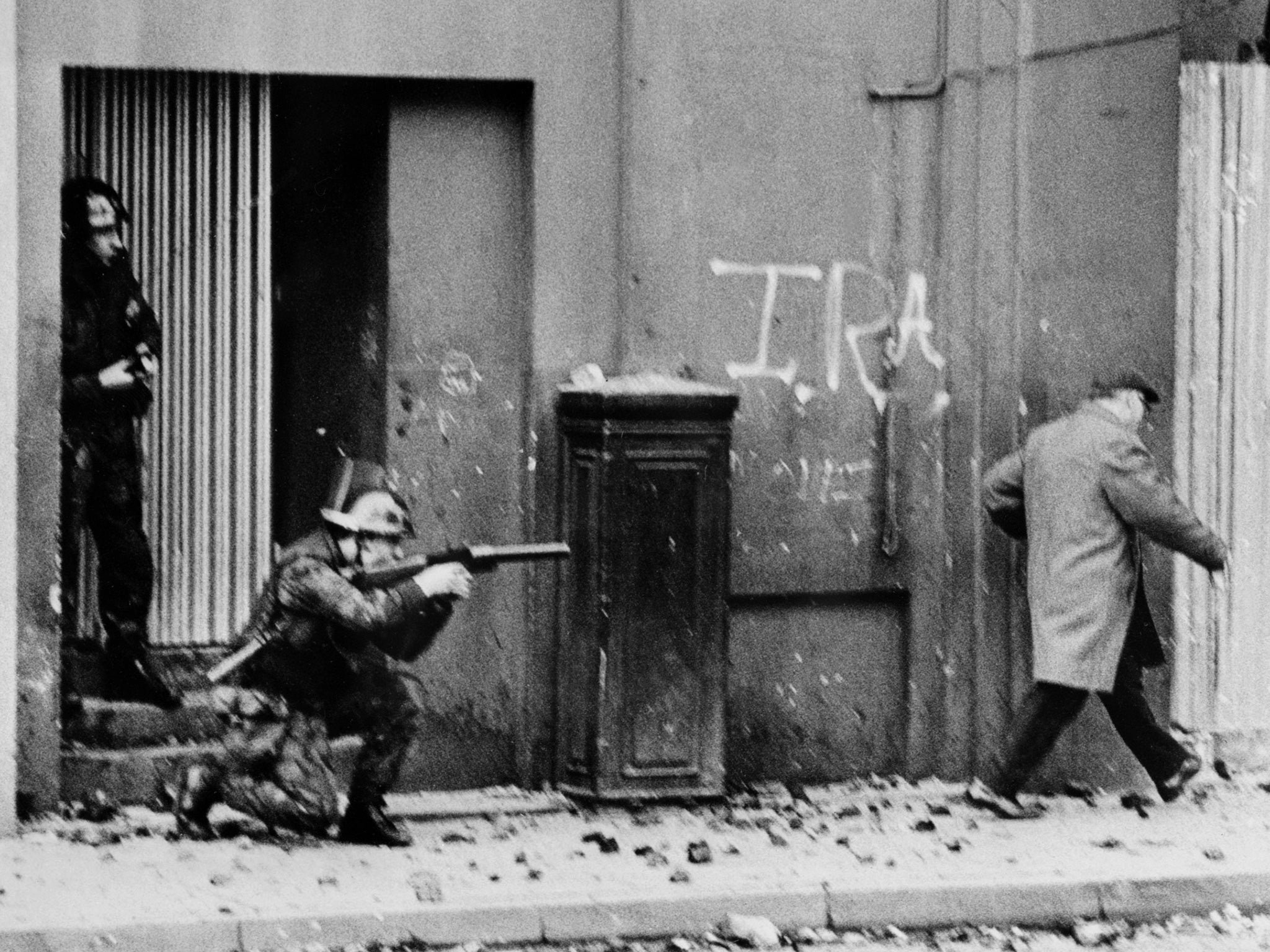The Hooded Men: Ireland’s backing to investigate British torture during the Troubles gave campaign impetus
Meanwhile the case is just the tip of the iceberg

Your support helps us to tell the story
From reproductive rights to climate change to Big Tech, The Independent is on the ground when the story is developing. Whether it's investigating the financials of Elon Musk's pro-Trump PAC or producing our latest documentary, 'The A Word', which shines a light on the American women fighting for reproductive rights, we know how important it is to parse out the facts from the messaging.
At such a critical moment in US history, we need reporters on the ground. Your donation allows us to keep sending journalists to speak to both sides of the story.
The Independent is trusted by Americans across the entire political spectrum. And unlike many other quality news outlets, we choose not to lock Americans out of our reporting and analysis with paywalls. We believe quality journalism should be available to everyone, paid for by those who can afford it.
Your support makes all the difference.The case of “The Hooded Men” is the latest in a series of episodes from the 1970s which have proved major potential embarrassments to the authorities.
In most of these instances, such allegations were dismissed at the time as republican propaganda but, in this case, an extra dimension lies in the fact that the Irish government has endorsed the torture allegation. The Dublin authorities have been cautious in backing such campaigns and have only done so in a minority of cases, such as the 1972 Bloody Sunday shootings. This is partly because the Irish government has been most reluctant to damage Anglo-Irish relations.
In 1971, when several hundred republican suspects were rounded up, there were numerous allegations of rough treatment by those arrested, but it later emerged that a dozen of those held had been singled out for special treatment. Security sources disclosed years later that these deep interrogation techniques had been used as an experiment which went wider than just Northern Ireland, with observers present from RAF intelligence, British Naval intelligence and other agencies.
The British government of the day was hugely relieved to be found not guilty of torture, and after several official inquiries the Heath administration decreed such methods should not be used again.
The Irish government has indicated it has reopened the case at Strasbourg on the basis of new information gathered by researchers for an Irish TV documentary. According to Foreign Minister Charlie Flanagan: “On the basis of the new material uncovered, it will be contended that the ill-treatment suffered by ‘The Hooded Men’ should be recognised as torture.”
“The Hooded Men” case is just one of a series of campaigns. Following the Bloody Sunday inquiry, a team of detectives is sifting through mountains of evidence considering whether charges of murder and other offences should be brought against paratroopers involved. Meanwhile, a campaign entitled the “Ballymurphy Massacre” is pressing for a full inquiry into shootings in west Belfast in which a number of civilians, including a Catholic priest, were killed by troops.
Join our commenting forum
Join thought-provoking conversations, follow other Independent readers and see their replies
Comments